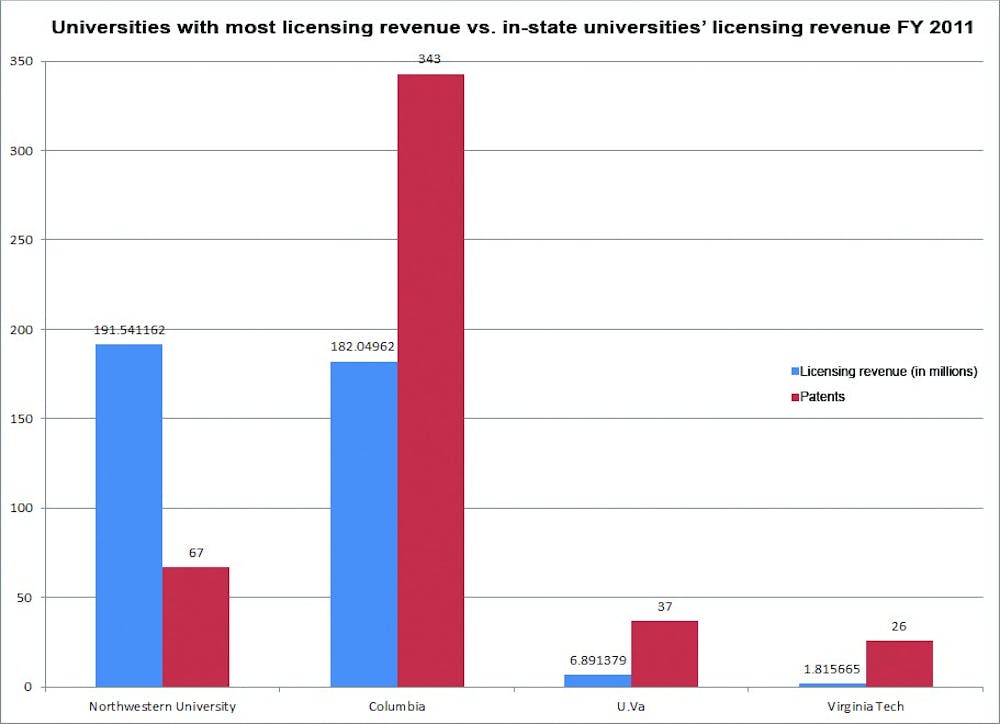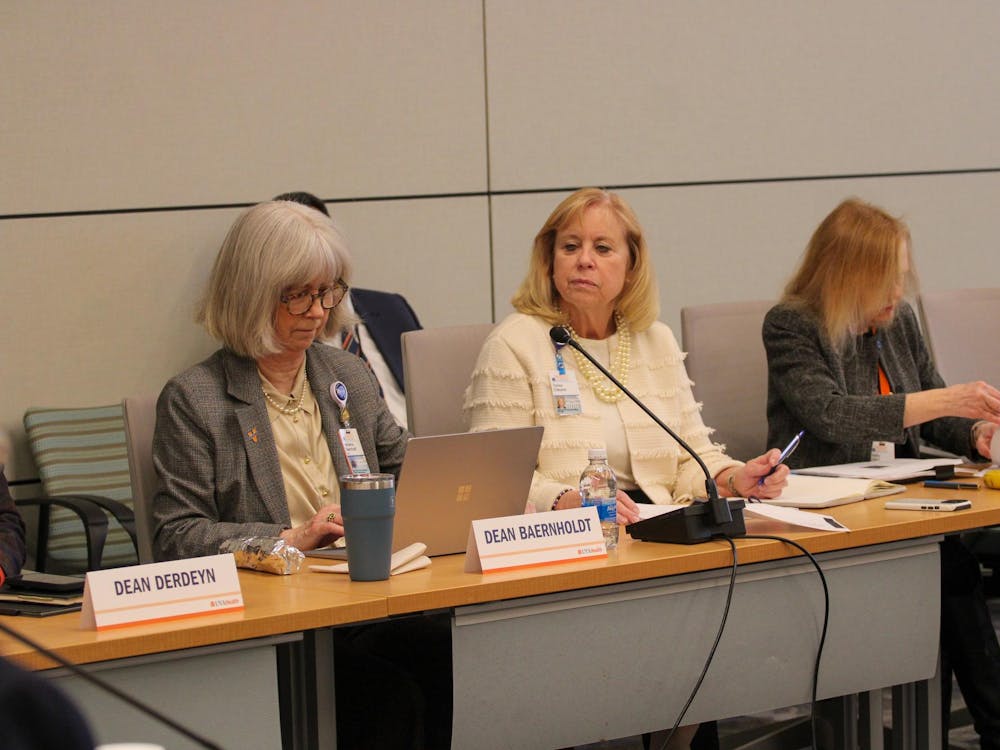The University has increased licensing revenue since 2010 but still remains middle of the pack among a recent study of 157 universities.
In the report, released by the Association of University Technology Managers, which promotes the global exchange of academic technology, the University ranked 40th and fell behind top universities who obtained more U.S. patents and formed more startup companies.
The University’s $6,891,374 in earnings and 37 issued patents is an increase from the $5,206,704 earned and 21 patents issued in 2010. But the University’s earnings are still well below many of its peer institutions, including many other public universities.
Strengthening the University’s culture of innovation should be a priority in the upcoming years, said Mark Crowell, executive director of U.Va. Innovation, the organization responsible for marketing University inventions, in an email.
“Successful innovation universities and regions develop a ‘buzz’ of excitement, optimism, success and economic opportunity,” he said. “Invariably, these dynamics should strengthen many aspects of U.Va.’s academic, research and related rankings.”
Improving the University’s commercialized academic research, however, requires innovation in the way the University encourages faculty and students to pursue these goals.
Given the four-year state faculty salary freeze, raises or bonuses cannot be used to incentivize University innovation, but Crowell said the University revised its revenue distribution policy last year to allocate a larger share of its almost $6.9 million in licensing revenue to the inventor and the inventor’s department.
“We felt [the change] better aligns our revenue policy with the desire to encourage, incentivize and reward innovation,” Crowell said. “Nevertheless, enhanced sharing of invention revenue is not a substitute for salary compensation to the faculty.”
A merit-based peer review incentive structure would be possible if the University emphasized the importance of competitive salaries to the state legislature, and if it teamed with school foundations to raise private support, said John Simon, executive vice president and provost, in an email.
“Our salaries are lagging behind our peers, especially in the [College],” Simon said. “It is important that we recruit and retain our outstanding faculty, and this will require that we address the fact that we have fallen behind in compensation.”
Nevertheless, the University is optimistic about its slight upward trend in licensing revenue, attributing it in part to “increased efficiency” at the U.S. Patent and Trademark Office and at the University. “[It] is also a testament to the high quality and innovative nature of the work of our student, faculty and staff researchers,” U.Va. Innovation spokesperson Morgan Estabrook said in an email.







